Novel breath test shows promise for diagnosing and monitoring bacterial infections
Powered by WPeMatico
Powered by WPeMatico
Powered by WPeMatico
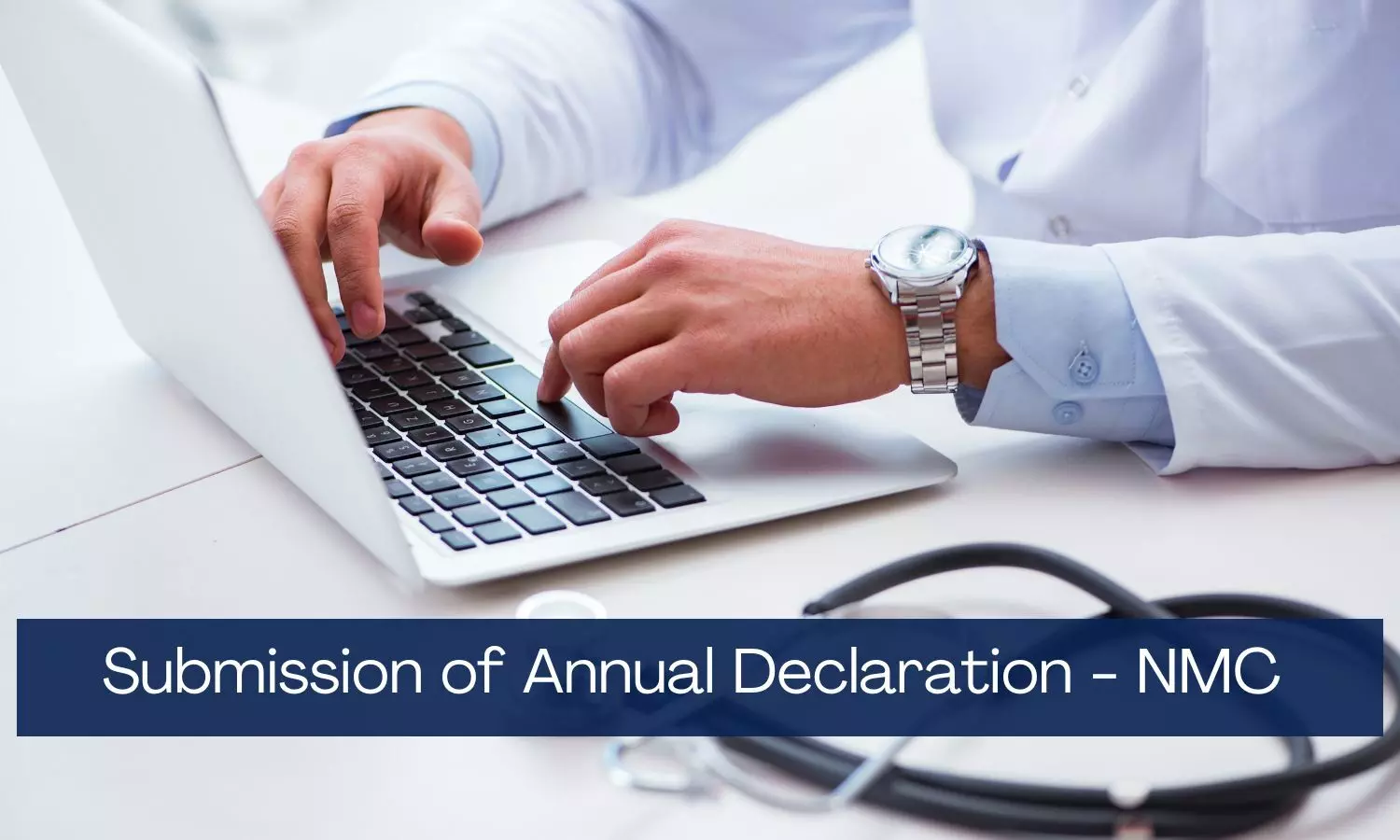
New Delhi: Cracking the whip on non-compliance, the National Medical Commission (NMC) has named 20 medical colleges that failed to submit their Annual Declaration Reports (ADRs) despite repeated notices and has issued show cause notices to them. The defaulting colleges have now been given a final opportunity to upload the required data by May 12, 2025, along with a penalty of Rs 50,000 per course, inclusive of GST.
While previously the last date to submit the annual declaration was 02.05.2025, the Postgraduate Medical Education Board (PGMEB) of NMC has now extended it till 12.05.2025.
Apart from the defaulting colleges, the Commission also released a list of 66 medical colleges that submitted incomplete Annual Disclosure Reports (ADRs) and asked these colleges to resubmit the same on the Commission’s portal.
“Reference is invited to the Public Notice of even number dated 01.10.2024, 29.10.2024 and 14.11.2024 with regard to uploading of ADRs by the Medical Colleges/Institutes, running PG Medical courses, on National Medical Commission (NMC) Portal as required in the NMC Act, 2019 and various Regulations, issued by NMC in the matter,” NMC PG Board mentioned in the notice dated 29.04.2025.
“It has been observed that despite three (3) Public Notices through the NMC website, twenty (20) colleges/institutes, as per attached list, have failed to upload their data for which a Show Cause Notice has already been served on them. This has been viewed very seriously by the Competent Authority in the NMC,” the PG Board of the Commission further mentioned.
Announcing its decision to extend the deadline for submission and asking the defaulting colleges to submit the same along with the penalty, the PGMEB further mentioned, “However, in order to complete the exercise, the PGME Board hereby extends the last date for submission of Annual Declaration Report on NMC portal from 02.05.2025 to 12.05.2025 by the defaulting colleges together with a penalty of Rs.50,000/- (including GST) per course. The other terms and conditions mentioned in the aforesaid Public Notices shall remain the same.”
NMC also addressed the 66 medical colleges that submitted incomplete data and added, “Further, in addition to these defaulting colleges, ADR forms of some of the streams/colleges could not be uploaded/downloaded properly (AnnexB). Therefore, these colleges are requested to re-load the ADRs.”
Referring to the PG Board’s notice, the Secretary of NMC, Dr. Raghav Langer wrote to the Principal/Dean of all the medical colleges/ medical institutes under NMC and stated, “Reference is invited to letter no. N-P016(20)/2/2024-PGMEB-NMC dated 29th April, 2025 issued by the Post Graduate Medical Education Board (PGMEB) pertaining to extension of last date for submission of Annual Declaration Report (ADR) in respect of PG Medical courses through NMC portal from 02-05-2025 to 12-05-2025 by the defaulting colleges (Annexure-A to the PGMEB notice) together with a penalty of Rs.50,000/- (including GST) per course.”
“Colleges/Streams, wherein ADR forms could not be uploaded/downloaded properly are also requested to re-load the ADRs (Annexure-B to PGMEB notice). All concerned stakeholders are requested to kindly take note of the same for further necessary action,” the Communication dated 30.04.2025 issued by the NMC Secretary further mentioned.
Medical Dialogues had earlier reported Stating that no MBBS seats will be permitted if the medical college does not submit the Annual Declaration within a specific deadline, the Undergraduate Medical Education Board (UGMEB) of the National Medical Commission directed the medical colleges to submit the details along with requisite fee including GST on NMC portal by 30 November 2024.
Consequently, NMC extended the deadline for submission several times and asked the colleges to comply with its directions. However, several colleges failed to comply with NMC’s directions despite multiple notices and on 28.03.2025, the Commission asked the colleges to submit a penalty of Rs 50,000 along with the ADR.
To view the latest NMC notice, click on the link below:
Powered by WPeMatico

New Delhi: The Padma Awardees Doctors Forum, comprising some of India’s most distinguished medical professionals, has strongly condemned the recent heinous terror attack in Pahalgam, which claimed the lives of 26 innocent civilians. The forum has committed to providing comprehensive medical assistance to the victims and their families.
In a heartfelt letter addressed to Prime Minister Narendra Modi, the forum, comprising 82 signatories, expressed deep anguish and outrage over the brutal attack.
“An act of terror that so brutally extinguishes lives is not only a national tragedy but also a profound moral affront,” the letter stated, news agency PTI reported.
The doctors emphasised their unwavering commitment to peace, resilience, and the sanctity of human life, condemning the attack as “a heinous assault on peace, humanity, and the values we collectively uphold.”
Beyond the condemnation, the forum has offered tangible assistance to the victims and their families, pledging comprehensive medical support.
“In our personal and professional capacities, we stand ready to offer medical assistance — including free consultancy and rehabilitation support’ — to those injured in the attack,” the statement added.
Additionally, they have extended this support to grieving families, providing medical guidance or counselling to help them navigate through their challenging times.
The Padma Awardees Doctor Forum, comprising India’s highest civilian awardees for medical contributions, reaffirmed its solidarity with the government’s efforts in ensuring security and justice.
“Our hearts go out to the bereaved families and to all those affected by this senseless act of violence. We remain united in grief and in our enduring commitment to peace, resilience, and the defence of human dignity,” the statement said, reports PTI.
Powered by WPeMatico

Bangalore: Strides Pharma Global Pte. Limited, a step-down wholly owned subsidiary of Strides Pharma Science Limited in Singapore, has received approval from the United States Food & Drug Administration (USFDA) for Celecoxib Capsules, 100 mg, 200 mg, and 400 mg.
The product is bioequivalent and therapeutically equivalent to the reference listed drug (RLD), Celebrex Capsules, 100 mg, 200 mg, and 400 mg, of Upjohn US 2 LLC.
Celecoxib is a selective COX-2 inhibitor used for the management of pain and inflammation associated with
various conditions including osteoarthritis, rheumatoid arthritis, acute pain, and dysmenorrhea. Celecoxib
Capsules, 100 mg, 200 mg, and 400 mg have a combined market size of ~US$ 116 Mn as per IMS.
“The approval of Celecoxib Capsules strengthens Strides’ portfolio in the anti-inflammatory therapeutic segment. This approval complements the company’s existing products in the same therapy area and enhances its ability to serve a broader patient population with effective, affordable treatment options,” Strides stated.
The product will be manufactured at the company’s facility in Puducherry.
Medical Dialogues team had earlier reported that Strides Pharma Global Pte. Limited, Singapore, had received approval for Acetaminophen and Ibuprofen Tablets, 125 mg /250 mg (OTC), from the USFDA.
Read also: Strides Pharma Science arm gets USFDA nod for Acetaminophen and Ibuprofen Tablets
Strides, a global pharmaceutical company headquartered in Bengaluru, India, is listed on the BSE Limited
(532531) and National Stock Exchange of India Limited (STAR). The Company mainly operates in the
regulated markets and has an “in Africa for Africa” strategy and an institutional business to service donorfunded markets. The Company’s global manufacturing sites are located in India (Chennai, Puducherry, and
two locations in Bengaluru), Italy (Milan), Kenya (Nairobi), and the United States (New York).
Read also: Strides Pharma buys four approved ANDAs from Nostrum Labs for over Rs 17 crore
Powered by WPeMatico
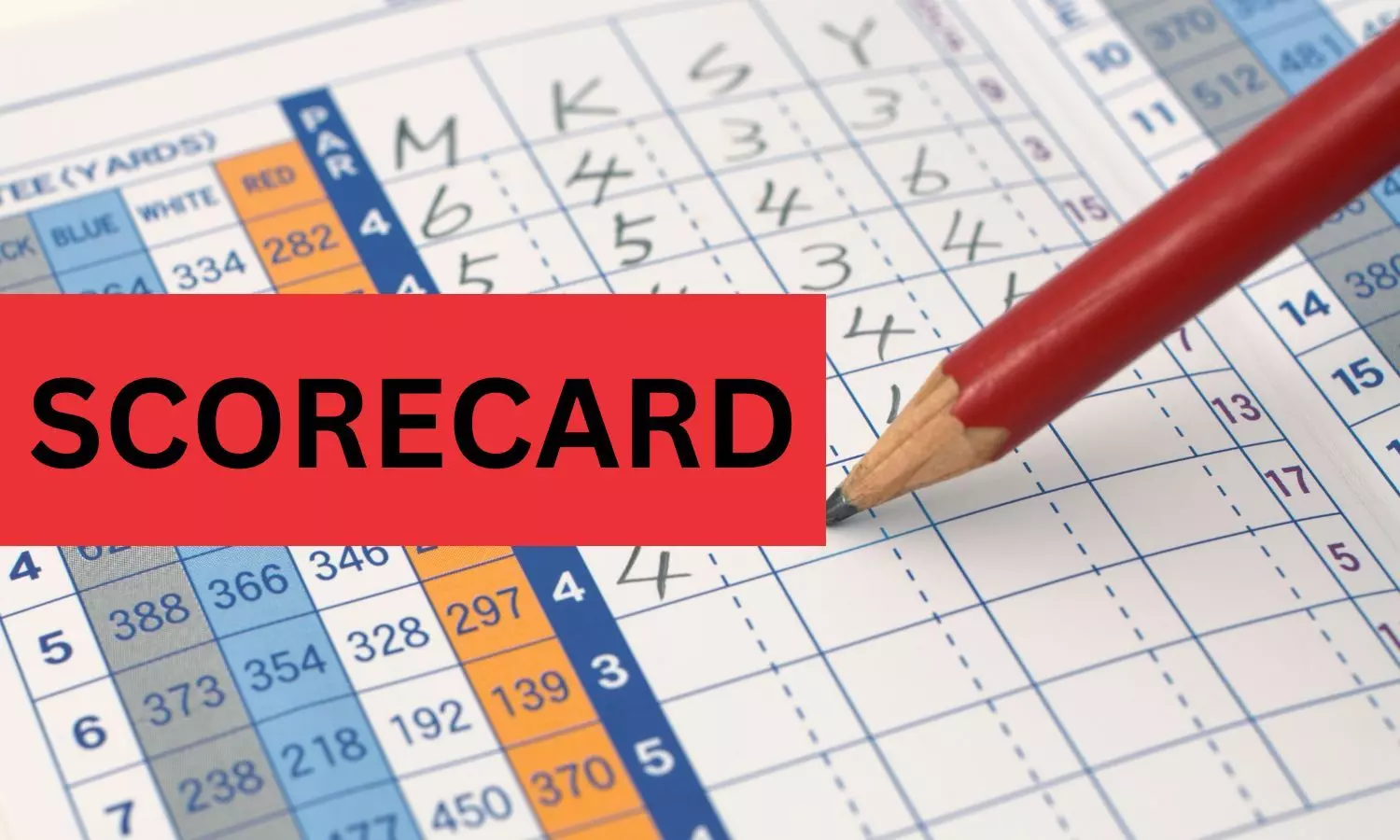
New Delhi- The National Board of Examinations in Medical Sciences (NBEMS) has released the scorecard of Diplomate of National Board-Post Diploma Centralised Entrance Test (DNB PDCET) 2025 on April 29, 2025. Therefore, to download the scorecard, students who have qualified the DNB-PDCET need to visit the official website of NBE.
The DNB PDCET Scorecard download link 2025 has been activated on NBE’s official website. Meanwhile, candidates need to enter their login credentials on the candidate portal to download the scorecard.
THE DNB PDCET scorecard 2025 is an important document that contains the details and performance of the candidates in the DNB PDCET exam. Details such as roll number, marks obtained, and rank obtained in the entrance exam are included in the scorecard of DNB PDCET 2025. The credentials required to download the DNB PDCET 2024 scorecard are application number and password/and date of birth. Apart from this, the DNB PDCET scorecard is also an essential document to appear in the counselling process.
STEPS TO DOWNLOAD THE DNB-PDCET 2025 SCORECARD
STEP 1- Visit the official website of NBE.
STEP 2- Select the “DNB PDCET” link from the examination tab.
STEP 3- Enter application number and password in the candidate login section.
STEP 4- Search for the DNB PDCET scorecard download link.
STEP 5- Download the DNB PDCET scorecard and take a printout for future reference.
The National Board of Examinations (NBE) was established in 1975 in New Delhi. It is an autonomous entity within the Ministry of Health and Family Welfare, Government of India. NBE conducts a few examinations, such as DNB final (exit) examinations, Fellowship Entrance and Exit examinations, NEET-SS for admission to DM/Mch/DrNB superspecialty medical courses across India, etc.
Powered by WPeMatico
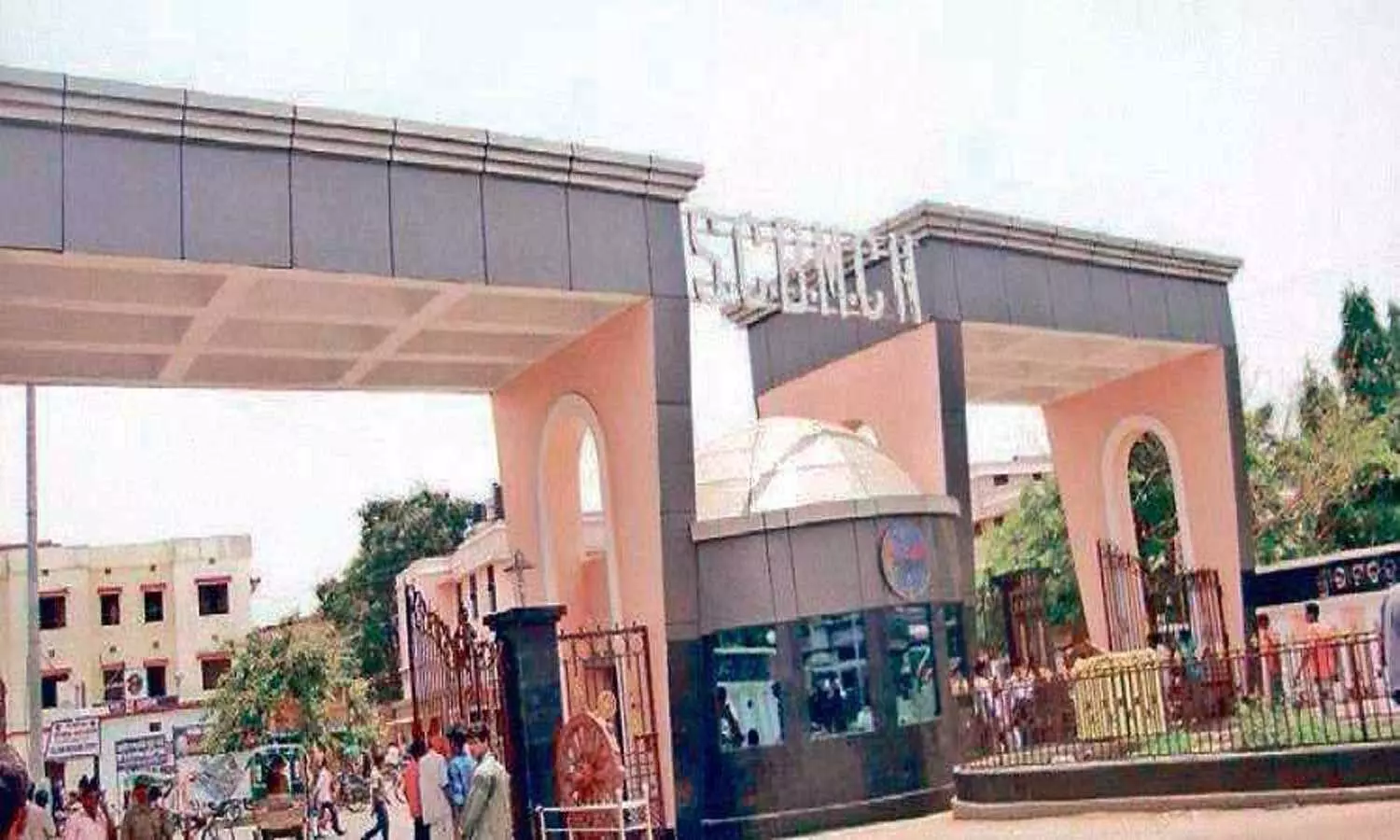
Bhubaneswar: In a move aimed at revolutionising healthcare and medical education in Odisha, Chief Minister Mohan Charan Majhi has announced that SCB Medical College and Hospital in Cuttack will be upgraded to AIIMS++ standards by June 2026, positioning it as a premier centre of excellence.
The announcement was made following a high-level review meeting at Lok Seva Bhawan on Tuesday, where ongoing redevelopment projects of government medical institutions across the state were assessed.
As per the latest review, the redevelopment of SCB Medical College is in progress with a projected investment of ₹4,474.49 crore and a target completion date of June 2026. Upon completion of the first phase, the hospital’s bed capacity will expand to 3,796, with a vision to transform the institution into a centre of excellence in both healthcare delivery and medical education.
Chief Minister Majhi emphasized the importance of aligning SCB’s infrastructure and services with national benchmarks like AIIMS.
Also Read: Odisha CM announces establishment of health university
According to Sambad English, in addition, the Acharya Harihar Post Graduate Institute of Cancer is also undergoing redevelopment. The first phase of the project involves an investment of ₹895.89 crore. Once the second phase is completed, the hospital’s bed capacity will expand to 1,127.
The state government is also undertaking major redevelopment efforts at several other key medical institutions. According to news reports at VIMSAR in Burla, an investment of ₹1,594 crore will see the bed capacity increase from 1,485 to 2,861. Similarly, MKCG Medical College in Berhampur is undergoing redevelopment at a cost of ₹1,014.13 crore, with bed capacity set to grow from 1,583 to 2,033. In Rourkela, the Government Hospital has been allocated ₹627.16 crore, which will expand its bed count from 437 to 763. Meanwhile, the Capital Hospital in Bhubaneswar is being redeveloped under a ₹595.8 crore plan, boosting its bed strength from 750 to 2,582.
These upgraded institutions will include cutting-edge healthcare infrastructure such as modern academic buildings, hostels, patient and attendant accommodations, residential quarters for staff, auditoriums, sports complexes, and digital facilities. The goal is to ensure equitable access to quality healthcare services and improve medical training standards across the state.
Powered by WPeMatico

In an Instagram
reel it is claimed that root canals are silent killers. The reel by the user
camillevegan is captioned as “Yes
they are. I’m a dentist and I have seen thousands of “failed” root canals – the
abscess/infection overtakes the root canal treated tooth. Eventually ALL root
canal treated teeth rot and fail. These teeth are the hardest to remove because
they crumble – like brown sugar – and I have to surgically cut them out.
No. I’m not trying to give any personal advice
on whether anyone should get a root canal. I simply want people to think; How
can leaving anything dead in your mouth NOT cause problems? Each tooth is an
organ w/ its own individual nerve(s). Dentistry is the ONLY profession in
medicine that leaves dead organs in the body. The ONLY.
FYI ….All root canal treated teeth will not
exhibit abscesses; localized, encapsulated infection that is evident on an
x-Ray, yet that does not mean residual/ongoing infection is not present.
As a dentist, I’m merely treating the results of
a far more endemic problem in our society – people are literally digging their
graves with their teeth. Go vegan.“
The user in the
reel says, “What happens when your dentist tells you, you know what? We need to
save your tooth or for some other reasons, sometimes even cosmetic reasons,
when you do a root canal and they drill into your tooth and they rip out the
nerve from the tooth with many of these corresponding blood vessels, then they
seal that tooth, shut, what does this do? It creates an abscess in there where
blood cannot reach. And what starts to form in there is rotting flesh,
anaerobic bacteria.
Now if you ask any
medical practitioner, any medical expert, is it okay to put rotting flesh into
your body? They’ll tell you, of course not. It’s crazy, you’re going to die.
It’s gangrene basically. Well, this is common practice in dentistry right now
on a daily level. And there’s a lot of research about”
The reel can be
accessed here.
The claim that root canals are a “silent
killer” is false and unsupported by scientific evidence.
Root canal treatments are a standard dental procedure used to save teeth and
eliminate infection. Root canals are safe, routine procedures—not “silent killers”—and there’s no scientific evidence linking them to systemic diseases.
Root canal treatment is a dental procedure that aims at
removing infected or inflamed pulp from within a tooth. After the pulp is
removed, the inside of the tooth is carefully cleaned, disinfected, and then
sealed. Afterwards, the tooth is restored with a crown or filling for protection and will continue to function like any other tooth. This process helps to get rid of harmful bacteria, stop further
infection, and preserve the tooth’s natural structure.
Root canal treatment is safe, effective, and supported by extensive scientific evidence. There is no valid scientific evidence linking root canal therapy to systemic health problems or chronic illness. Root canal procedures are part of advanced modern dentistry, and today’s techniques make the treatment highly predictable, successful, and safe.
An article published in Clinical Oral Investigations concluded that endodontically treated teeth demonstrate high long-term survival and success rates. The study suggested that the strong long-term prognosis of these teeth supports choosing root canal treatment over extraction and implant placement for managing teeth with pulpal or periapical disease.
According to the American Association of Endodontists, root canal treatment does not cause illness or systemic disease. Claims suggesting such a link are false and based on outdated, discredited research.
A review article published in International Endodontic Journal concludes that there have been no publications to suggest that root canal treatment has any adverse systemic effects.
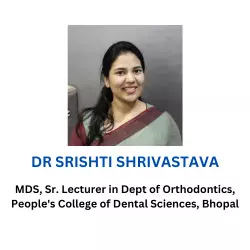
Dr Srishti Shrivastava, Senior Lecturer in Department of Orthodontics at People’s College of Dental Sciences, Bhopal, said that “Root canal treatments are safe and effective, and there is no credible scientific evidence linking them to any systemic diseases. The myth that they are a ‘silent killer’ comes from old, debunked studies. Modern root canals are performed with strict infection control and benefit your long-term health.’
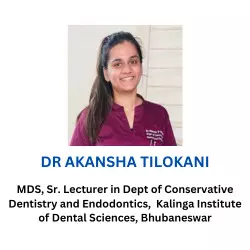
Dr Akansha Tilokani, Senior Lecturer in Department of Conservative Dentistry and Endodontics commented, “Root canals are often misunderstood, but the facts speak for themselves: they are safe, effective, and backed by decades of research. Myths like “root canals cause cancer” or “all root canals fail” have been debunked, modern studies show a 97% success rate when properly performed and maintained. While root canal-treated teeth are no longer vital, they are thoroughly cleaned, sealed, and preserved, functioning just like natural teeth. Don’t let outdated misinformation prevent you from saving your teeth—trust science and consult experienced dental professionals.”
The claim that root canals are a “silent
killer” is not supported by modern science or credible dental
associations. This myth often leads to unnecessary fear and poor dental
decisions. Root canal therapy remains a safe, effective, and widely
endorsed treatment to preserve natural teeth and prevent infection.
Powered by WPeMatico
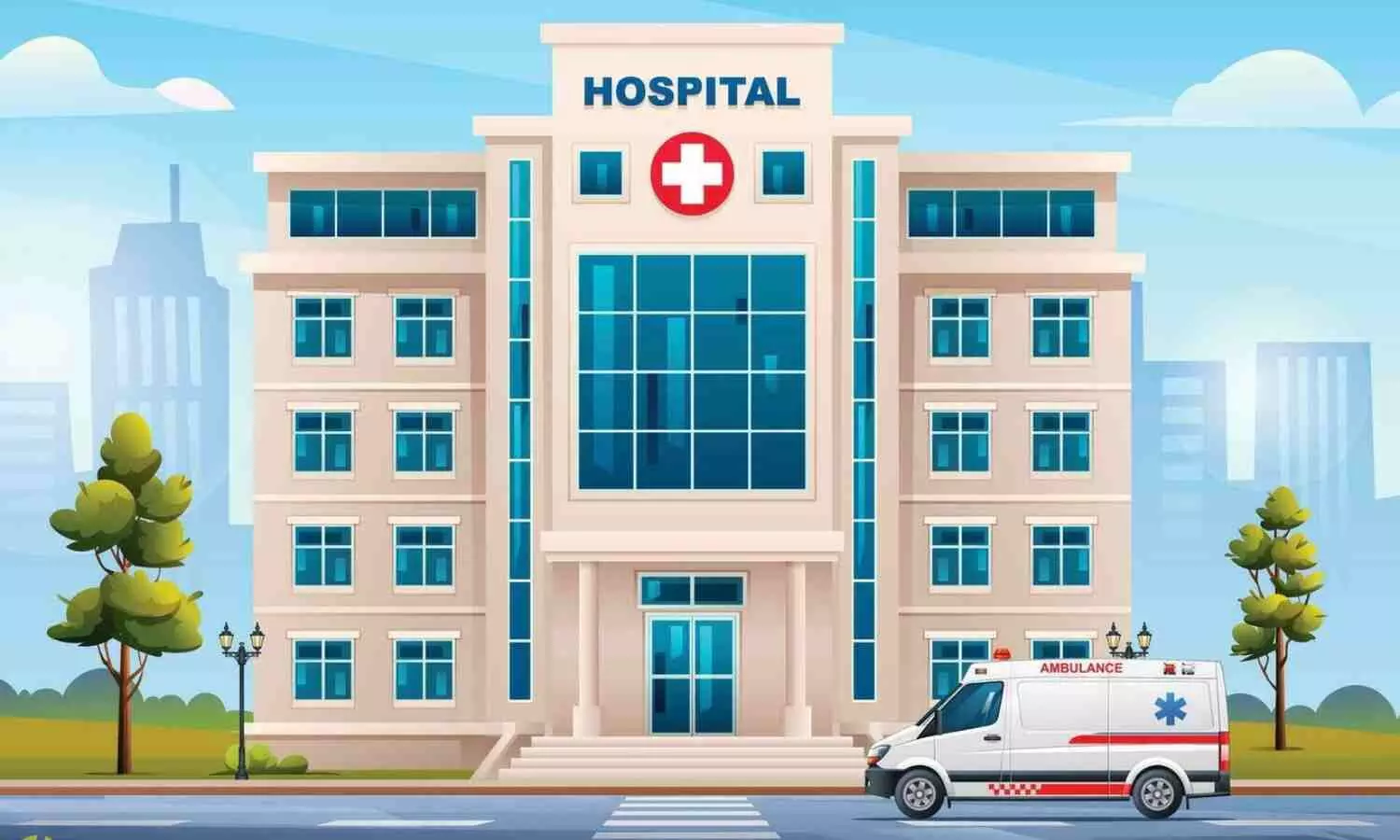
Bhubaneswar: Two weeks after the launch of Ayushman Bharat-Pradhan Mantri Jan Arogya Yojana (AB-PMJAY) and the state-run Gopabandhu Jan Arogya Yojana (GJAY) in Odisha, private hospitals empanelled under the scheme have reportedly refused to provide free treatment for certain procedures, citing low package rates and technical issues.
On Tuesday, Odisha Health and Family Welfare Minister Mukesh Mahaling issued a stern warning to all empanelled hospitals, saying strict action will be taken against any hospital that denies treatment to eligible patients.
The confusion comes just days after several private hospitals raised concerns over the financial viability of the newly implemented schemes. According to the All Odisha Private Medical Establishments Forum (AOPMEF), the revised treatment package rates are 15-20% lower than the earlier Biju Swasthya Kalyan Yojana (BSKY), making it difficult for hospitals to cover costs and maintain quality.
Also read- Union Health Minister JP Nadda launches Ayushman Bharat scheme in Odisha
Forum secretary Dr Indramani Jena said, “Pricing for implants, including Rs 75,000 for pacemakers and Rs 10,000 for spine implants, is unsustainable. While the packages for ortho surgeries, knee replacement and neurological procedures are down by over 15 per cent, Rs 70,300 is being offered for spinal surgery instead of the old rate of Rs 84,000. For a teflon mesh, only Rs 800 allotted for its minimum price of Rs 1,700.”
According to a latest media report by TNIE, the forum is demanding a minimum 30% hike in package rates to keep up with inflation and rising operational costs.
Meanwhile, Health Minister Mahaling reassured the public that the government is actively reviewing all issues flagged by the hospitals. “All concerns related to the scheme are being examined and will be resolved soon,” he said, adding that refusing treatment to eligible patients will invite strict legal action, reports Odishabytes.
Mahaling clarified that individuals under five categories have been included under the Ayushman Bharat scheme. “Those covered under National Food Security Act (NFSA), the State Food Security Scheme (SFSS) and the Antyodaya Anna Yojana (AAY) can avail the benefits. Naveen and ration cards also serve as proof of eligibility,” he said.
The Minister further stated that the government is leveraging digital infrastructure to bridge any gaps. He clarified that the technical bottlenecks in the current system flagged by the hospitals, especially Aadhaar-based OTP authentication related to PAN-India card integration and OTP verification, are being reviewed for active resolution.
On the demands to increase treatment package rates, the minister said, “The matter is also being looked into. The state government is examining feedback from various stakeholders, including patients and hospitals, and verifying the cost of treatment under the scheme in other states to come up with a solution that is acceptable to all.”
“e-KYC (electronic Know Your Customer) verification was conducted during ration card drives, and those left out will soon be linked to the health scheme,” he said.
Also read- 24 Nagpur Hospitals found denying AB-PMJAY Treatment: RTI
Powered by WPeMatico

New Delhi: The Ministry of Ayush, Government of India, is set to organize the National Ayush Mission (NAM) Conclave 2025 on 1-2 May 2025 at Kaivalyadham, Lonavala, Maharashtra.
This transformative 2-day event will serve as a national forum for shaping the future of Ayush-based healthcare in India. Bringing together Ayush experts, policymakers, health professionals, researchers, and innovators, the conclave aims to strengthen integration of traditional Indian medicine systems into mainstream healthcare—making wellness more accessible, affordable, and evidence-driven for the common citizen.
The conclave is scheduled to be inaugurated by Shri Prataprao Jadhav, Union Minister of State (Independent Charge), Ministry of Ayush whereas the Deputy Chief Minister, Government of Rajasthan and Health Minister of nine States/UTs of India are also expected to attend the conclave. Vaidya Rajesh Kotecha, Secretary, Ministry of Ayush, and other dignitaries will also be present during the event.
Officials from State/UT Ayush departments including Mission Directors, senior government officials, and renowned academicians are also set to participate in the conclave. The event is planned to include plenary sessions, policy roundtables, technical deep-dives, besides showcasing best practices, state success stories, and tech-led innovations in the Ayush sector.
Speaking about the upcoming event, the Ayush Minister mentioned, “The National Ayush Mission Conclave is a significant step towards fostering a collaborative ecosystem to strengthen the wellness and healthcare infrastructure across the country. We aim to take forward the vision of our Prime Minister Shri Narendra Modi ji of holistic health for all through a robust and integrative Ayush framework.”
The National Ayush Mission conclave is set to serve as a vibrant platform to discuss the latest developments, research innovations, and sectoral collaborations across Ayurveda, Yoga & Naturopathy, Unani, Siddha, Sowa-Rigpa, and Homeopathy in various states and UTs of India. It will also focus on strengthening the implementation of flagship initiatives, promoting evidence-based practices, and enhancing international outreach. The Conclave aims for Minister level discussions to chalk out future expansion of the NAM Scheme.
Vaidya Rajesh Kotecha, Secretary, Ministry of Ayush, stated, “The Ministry of Ayush is organising the NAM Conclave-2025 to reflect on the achievements of the National Ayush Mission, address emerging challenges, and chart a path toward a self-reliant and robust Ayush healthcare system.”
While talking about the themes of the Conclave, Ms. Kavita Garg, Joint Secretary, Ministry of Ayush, informed, “the conclave will cover diverse themes, including financial management, monitoring and evaluation, HR strengthening, integration with modern medicine, and quality assurance. It will also showcase the best practices, IT innovations, regulatory mechanisms and investment and export opportunities with rich experience sharing from States and UTs.”
Document Release: Launch of Blueprint for Ayush Policy 2025 and Standard Treatment Guidelines (STG) on Metabolic Disorders in Ayush System of Medicines.
Ministerial Round Table: Featuring Union Minister of State (IC), Ministry for Ayush, Shri Prataprao Jadhav, along with Health and Ayush Ministers from various States/UTs, deliberating on strengthening the National Ayush Mission.
Expert Sessions: Presentations by DGHS, NABH, Invest India, Ayush Export Promotion Council and leading institutions on quality standards, accreditation, and investment facilitation.
Successful Case Studies: Best practices from the majority of States/UTs.
Yoga Session: Guided Yoga and Meditation Session are also planned for delegates participating in the event.
The flagship program National Ayush Mission launched in 2014 and it has played a crucial role in preserving and promoting India’s traditional systems of medicine and their integration into the mainstream healthcare system. It aims to enhance the availability, accessibility, and quality of Ayush healthcare services across the country through Ayushman Arogya Mandir (Ayush) as part of Government of India’s Ayushman Bharat scheme.
In the last edition of NAM Conclave held in 2023, several key resolutions were adopted, including expansion of Ayush Health and Wellness Centres (now AAM-Ayush), integration of Ayush services with National Health Programs, and capacity building of Ayush practitioners. The 2025 edition aims to build upon these achievements, with renewed focus on innovation, standardisation, and international outreach.
Powered by WPeMatico
